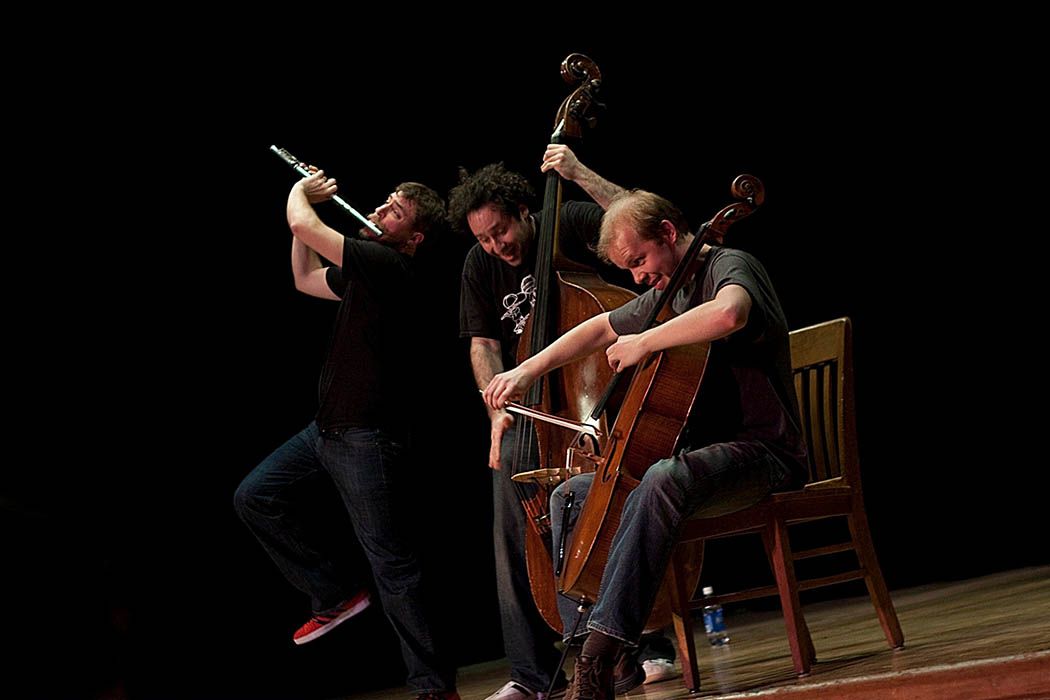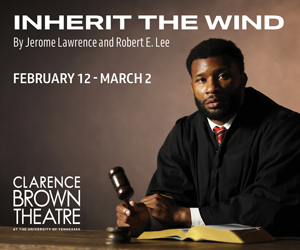As I suggested in my preview of this weekend’s Knoxville Symphony Orchestra Masterworks concerts, the conversation on what constitutes the future of classical music is not a new one. While it has been a regular topic for years for national music writers like Alex Ross, Greg Sandow, Ann Midgette, et al., it is a bit surprising that Knoxville has side-stepped direct participation in that conversation before now, given that our local music scene is uncommonly diverse, running the gamut from regional roots music to the cutting edge of the Big Ears Festival, and most genres in between. Although it often appears otherwise, the conversation is not simply about new music versus old music, but also about a changing classical music audience and the financial issues that are at the root of organizational decisions.
KSO music director Aram Demirjian has jumped headlong into that conversation, the latest being his programming for the weekend’s concerts: “Bohemian Rhapsodies.” Proclaiming that the concert would be something different, Demirjian offered a mixed bill covering literal Bohemian composers Antonín Dvořák and Bedrich Smetana on one hand, and figurative Bohemians on the other in the form of guest artists, PROJECT Trio. That threesome (flautist Greg Pattillo, cellist Eric Stephenson, and double bassist Peter Seymour) brought several works developed by them with a backing orchestral arrangement, as well as a concerto written for them, Scatter, by Adam Schoenberg. And last, but certainly not least, they served as soloists in a surprisingly effective orchestral arrangement of Freddie Mercury’s “Bohemian Rhapsody.”
Obviously, Demirjian realizes that in formulating mixed concerts, he walks in treacherous territory where some may find it convenient to blur the line between thought-inducing contemporary music and profit-driven fusion-pops-crossover music in the belief that compromise is necessary to expand the traditional audience. An unfortunate example of misplaced compromise on the concert was PROJECT Trio’s first half intro teaser selection, a jazzed arrangement of Brahms Hungarian Dance No. 5. Admittedly, while the work has already suffered countless mocking over the years from cartoons and commercials, it simply didn’t need another one on an otherwise fascinating non-pops program.
The appeal of PROJECT Trio lies in a combination of informal patter, high-voltage, virtuosic performance, and addictive arrangements full of quirky details and subtle humor. Their two second-half works, Raga Raja and Djangish, led into the more serious and compelling Scatter, a concerto commissioned for PROJECT Trio as soloists from composer Adam Schoenberg. Friday evening’s performance of Scatter was focused and engaging, with the trio’s solo work working well against the plethora of percussion textures and subtle electronic sounds interwoven with traditional woodwinds and strings.
In many ways, though, the highlights of the evening were the opening and closing works: Dvořák’s Symphony No. 8 in G Major and Freddie Mercury’s “Bohemian Rhapsody” in an orchestral arrangement by Nicholas Hersh.
Music writers over the years have affixed a number of nicknames to Dvořák’s Symphony No. 8, including the “English Symphony,” the “Idyllic Symphony,” an attempt at “Pastoral Symphony,” even the “Bohemian Symphony.” All of these reflect a delicious texture that Demirjian extracted from the work, that of charm and a pastoral quality rendered with a satisfying solidity and ebullient clarity. Noticeable right from the opening measure, and again in the finale, Principal Andy Bryenton and the KSO cellos played as a velvety ensemble backed up by luminous horns, setting the stage for that pastoral feel. And, although Dvořák doesn’t really develop the melodies into substantial themes before moving on, the pastoral textures, such as birds chirping amid a rural landscape (Hannah Hammel, flute; Claire Chenette, oboe; Gary Sperl, clarinet) carry the listener along. Later on, intriguing conversations crop up with more woodwind flavor from oboe and bassoon (Aaron Apaza). The finale movement had a lot of interest as well, thanks to satisfying solos from KSO trumpets, flutes, and clarinets—and the cellos get another spotlight. And, as the movement sped up to the stupendous climax, the orchestra’s energy spilled from the stage and grabbed the audience.
Demirjian opened the second half of the concert with a consummately well-played performance of the addictive “Dance of the Comedians” from Act III of Smetana’s opera The Bartered Bride. Then, as PROJECT Trio took control for their numbers, it already seemed like a complete evening. Nevertheless, the real topper was the KSO’s rapturous performance of Freddie Mercury’s “Bohemian Rhapsody” as arranged by Nicholas Hersh. Although Hersh’s original version featured a viola as the soloist, the work was easily adapted to lyrical flute and cello passages played by Patillo and Stephenson. KSO Principal trumpet Phillip Chase Hawkins, too, had an ear-opening virtuosic turn.
Hersh’s work is a brilliant arrangement of a brilliantly composed rock song by a brilliant composer. If a work can be judged by its emotional impact, Friday evening’s audience would agree that Freddie Mercury’s “Bohemian Rhapsody” stands second to none. After all, good music is – good music.







Wish it were so: “our local music scene is uncommonly diverse.”